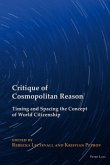This book examines the triumphs and tribulations of the Zimbabwean national project, providing a radical and critical analysis of the fossilisation of Zimbabwean nationalism against the wider context of African nationalism in general. The book departs radically from the common 'praise-texts' in seriously engaging with the darker aspects of nationalism, including its failure to create the nation-as-people, and to install democracy and a culture of human rights. The author examines how the various people inhabiting the lands between the Limpopo and Zambezi Rivers entered history and how violence became a central aspect of the national project of organising Zimbabweans into a collectivity in pursuit of a political end.
«A thoughtful meditation on the role and effects of violence in the colonial and post-colonial making of nation and state in Zimbabwe ... [the book] raises questions of significance for a wider audience.» (Mahmood Mamdani, Herbert Lehman Professor of Government, Columbia University)
«An important addition to the new critical scholarship on nationalism emerging out of the economic and governance crisis in Zimbabwe.» (Jane L. Parpart, Professor of Development Studies, University of The West Indies)
«An exciting theoretical-historiographical exploration of Zimbabwean history from the pre-colonial to the contemporary period.» (Brian Raftopoulos, Director of Research and Advocacy, Solidarity Peace Trust)
«An important addition to the new critical scholarship on nationalism emerging out of the economic and governance crisis in Zimbabwe.» (Jane L. Parpart, Professor of Development Studies, University of The West Indies)
«An exciting theoretical-historiographical exploration of Zimbabwean history from the pre-colonial to the contemporary period.» (Brian Raftopoulos, Director of Research and Advocacy, Solidarity Peace Trust)








